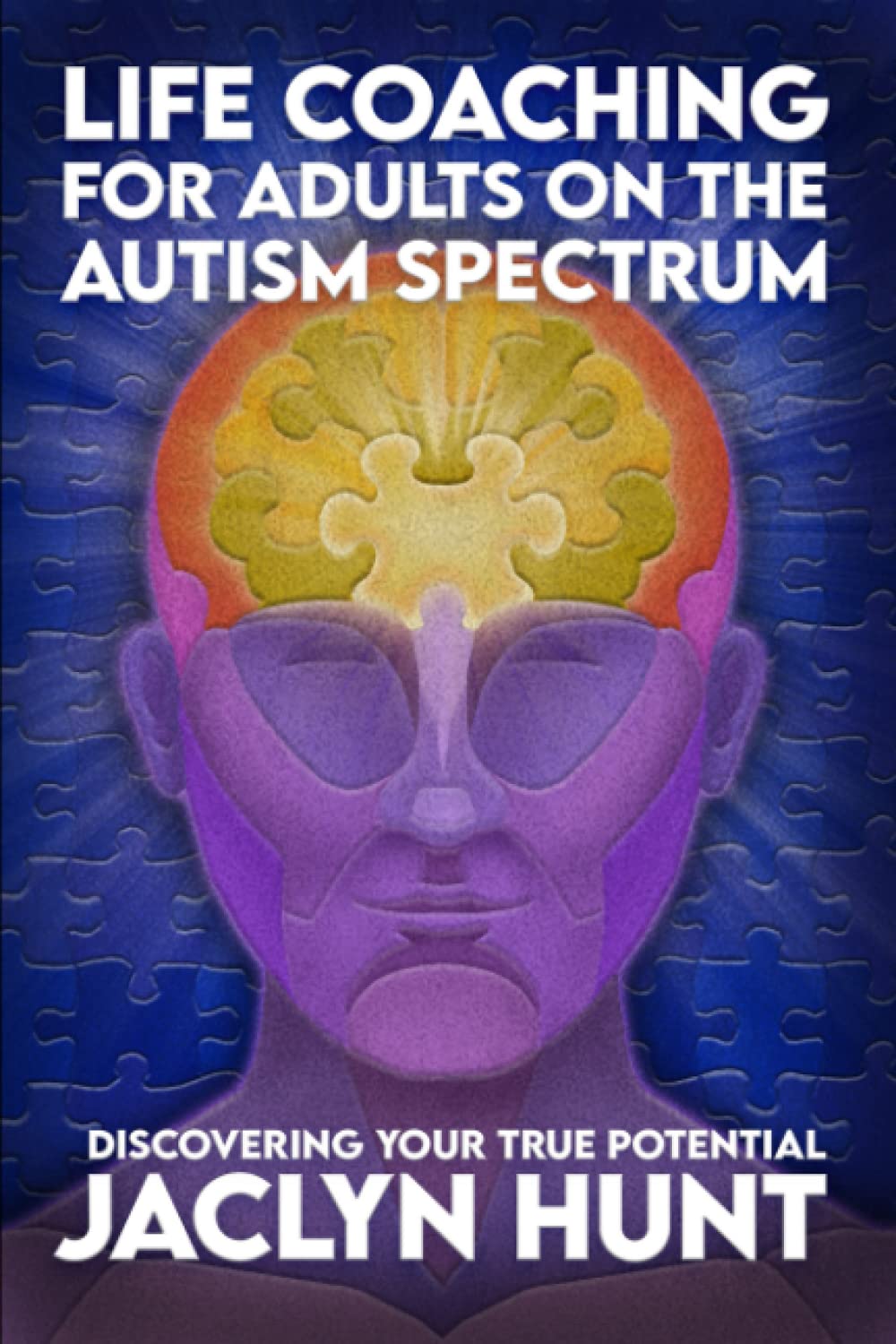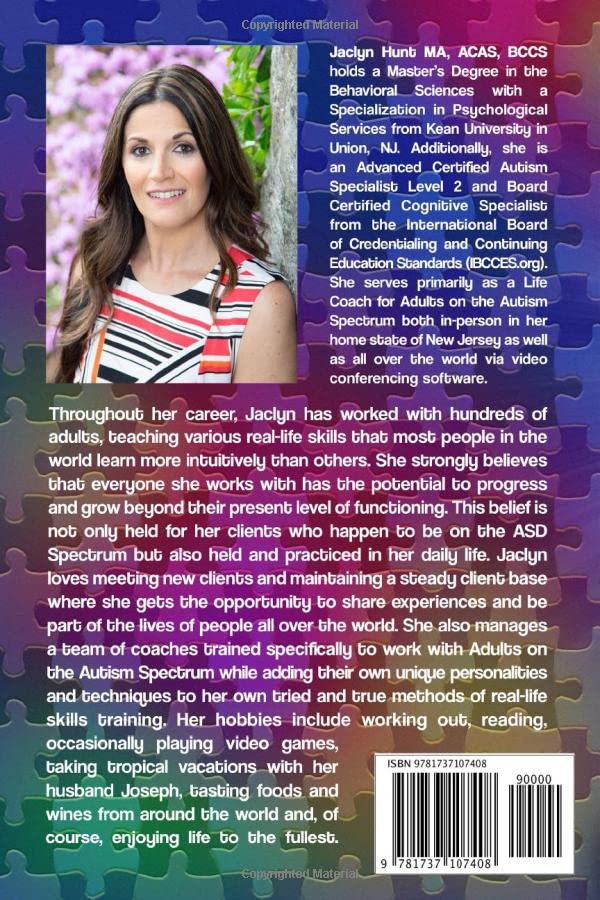Customer Services
Copyright © 2025 Desertcart Holdings Limited
Desert Online General Trading LLC
Warehouse # 7, 4th Street, Umm Ramool, Dubai, 30183, Dubai



Full description not available
A**S
Aspergers mans review\all of us needed this
I feel this is better for people more strongly afflicted but its nice to hear a compassionate and understanding view for once in my life. This did still provide vital insights into what I was only beginning to figure out in my late 20's when it comes to talking to people or my issue of monologing and not using proper body language along with not being an active listener or understanding levels of friendship. This book is great for help you realize what the problems are and what solutions to seek out. To the author I truly am thankful to you for writing such a wonderful book and I hate that it took me 28 years to hear an understanding and compassionate voice but it really brought my spirits up. I put massive efforts into trying to conquer my issues and this book helped me identify things for me to work on. To anyone on the spectrum who has been suffering I understand and this book will help you/us.Helps find the gapsTells how to solve problemsProvides insight between ASD and Neurotypicals
S**S
Enjoy reading
Very informative
R**3
Deep
Very specific on data. If you like that you’ll love this. For the provider or recipient. Well thought out.
A**3
Excellent Resource For Adults On The Autism Spectrum & Those Who Work With Them
I found this book to be an excellent resource for adults on the autism spectrum, their families, and the practitioners who work with them, especially for those with a recent diagnosis, and those who are new to working with autistic individuals. There are a myriad of ways that autistic people present, and no two are alike. That said, this book helps provide knowledge of common autistic traits as well as the great strengths that come from having this neurotype. It also notes common challenges and ways to help autistic individuals, their families, and their practitioners, work with them effectively and help them reach their fullest potential. The book is broken down into the 3 sections: Information for Autistic Adults, Information for Coaches who work with Autistic Adults, and Information for Parents and Other Professionals who live and work with Autistic Adults. It has forewards written by an Autistic adult, as well as a Coach who works with Autistic adults, and a Parent of an Autistic adult. Reading these 3 different perspectives, all noting positive outcomes for those who do the work that coaching requires, I believe others will find this book very heartening and helpful.
A**R
Fix This!
The book was hard for me to read. Long sections of text that should have been broken into paragraphs. Subtitles needed to highlight major ideas. As an autistic person, I thought she had a lot of important insights to share. Her personal style and her experience lead me to believe she would be a good coach to work with. The book was geared to new graduates starting out on their own. Since I am in my seventies, it was not age appropriate for me. She could write a new book called"Starting Out". It could be clearer on what a young person needs to do step by step. I wish Ms.Hunt the best.
M**L
This is meant for ALL
“The biggest predictor of success in life is not your academic ability; rather, it is your ability to interact with society effectively.“That is the biggest and single most important takeaway from this book. As someone on the spectrum, I had a choice between waiting for NTs to be patient enough to accept my way of speaking, or I could try learning their method of communication. There is nothing wrong with proactively learning about how other NTs act and think. There is nothing inherently wrong with being on the spectrum either. That is what this book is about. Finding a way to overcome our own shortcomings and showcase our strengths.
L**D
Utterly useless to the adult on the autism spectrum
As an older adult recently diagnosed as being on the autism spectrum (in the past I would have been identified as having high-functioning Asperger's), I was really interested in some practical life coaching and "discovering my true potential". Sadly, this book doesn't even touch those topics. The book is only 10 chapters that are divided into three 'parts'. As seen in the photo of the contents, these three parts are "For the ASD Adult", "For the Coach", and "For the Parents and Professionals". Right out of the gate, 2/3 of this book is not even remotely written for the ASD adult. Sadly, it gets worse.Chapter 1 - The High School YearsChapter 2 - The College and University ExperienceChapter 3 - Finding a Job and Establishing a CareerChapter 4 - Independent Living and RelationshipsSo now, Chapter 1, 1/4 of of the 1/3 of the book that is supposed to be for adults isn't even about adults. Chapter 2 might be helpful if one is young adult. Chapter 3 continues in the progression of assuming that one has never had a job and has no career. Finally, we get to Chapter 4 that dedicates a whopping 7 1/2 pages to the oddly combined topics of independent living and relationships. There are countless books that dedicate tens or hundreds of pages to the topic of relationships, alone. This book only gives some subset of 7.5 pages to this topic.That's it folks. If you're an ASD adult you get 62 pages that even pretend to be about "discovering YOUR true potential". The rest of the book is significantly a rehash, but it's no longer talking to you. It's talking to your "handlers".This book is not for the the ND (neurodivergent) who is already a functional adult seeking to reach their true potential. This book is for the ASD child who may be about to enter high school or for the ASD adult-in-age-only trying to become a very minimally independent adult.This self-published book would also benefit greatly from having a critical review by an accomplished editor. A good editor would have relegated parts 2 and 3 to an 'afterword', changed the title of the book to reflect its content, and encouraged the author to dedicate far fewer words to talking about themselves.
L**E
Life coaching for adults wit autism
Jaclyn explains the disorder well and why there are so many variations. She offers hope and counsels to break down approaches for assistance into many little steps that are achievable for the individual with ASD. Then proceeds to break down understanding for the reader into many little steps.
Trustpilot
2 weeks ago
1 month ago
1 month ago
1 month ago